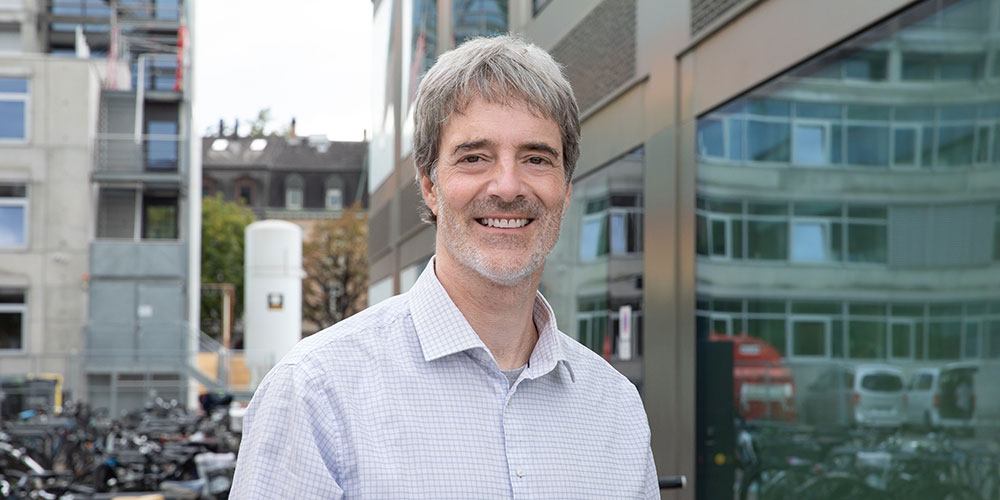Dirk Bumann elected as member of Leopoldina
The German National Academy of Sciences Leopoldina has elected Prof. Dirk Bumannn as a new member. The infection biologist is a research group leader at the Biozentrum, University of Basel, and also one of the directors of the NCCR AntiResist. Election to the ranks of the prestigious academy Leopoldina is a high honor for scientists.
27 May 2024
The German National Academy of Sciences Leopoldina recognizes Prof. Dirk Bumann from the Biozentrum, University of Basel, for his outstanding scientific achievements in the field of infection biology. This year, Leopoldina has admitted 18 new members to Class II Life Sciences, including Dirk Bumann, who has been elected to the Microbiology and Immunology Section. According to Leopoldina: “his election was based on strict criteria of scientific excellence”.
Dirk Bumann studied Chemistry and Biology and earned his PhD from the Max Planck Institute of Biochemistry in Martinsried in 1994. Subsequently, he continued his research first as a postdoctoral fellow at the Max Planck Institute of Biochemistry and later at the Marine Biological Laboratory, Woods Hole, USA. Before being appointed Professor at the University of Basel in 2007, he was research group leader at the Max-Planck-Institute for Infection Biology in Berlin, and at Hannover Medical School, Germany.
In his research, Bumann aims to better understand bacterial infections. He and his team focus on the cellular and molecular processes within the tissue of infected animals and humans. The insights gained from this research provide novel approaches for the development of innovative vaccines and antimicrobial drugs.
Leopoldina – Germany’s National Academy of Sciences
Established in 1652 in Schweinfurt, Germany, Leopoldina is one of the oldest and most prestigious scientific academies in the world. The Academy is independent and dedicated to the common good. As the German National Academy of Sciences, Leopoldina advises politicians and the public on current scientific and science policy issues and helps shape debates on topics of social importance.
Since its foundation, more than 7,000 outstanding scientists were appointed members, among them some of the most esteemed scientists in history such as Marie Curie, Charles Darwin, Albert Einstein, Max Planck and Alexander von Humboldt. The academy has currently about 1,600 members from over 30 countries bringing expertise from almost all research fields. With Dirk Bumann, ten professors from the University of Basel are currently members of the renowned academy of science.


